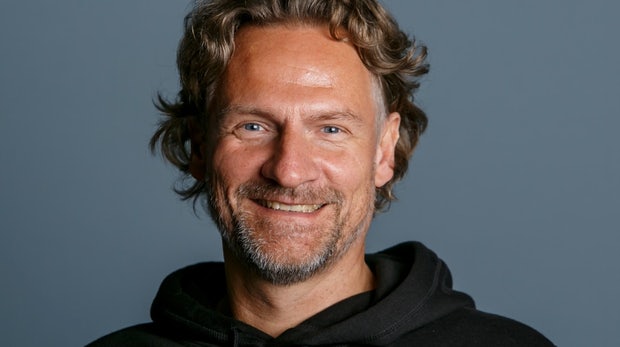The Domain Pulse Q&A series looking at 2018 in review and ahead to 2019 today has dotBERLIN’s Dirk Krischenowski. Krischenowski has been involved in the ICANN new gTLD programme since its infancy over a decade ago and was one of the founders of the .berlin project. Today dotBERLIN has become the fourth largest geographic TLD with over 54,000 registrations, an impressive feat given that the 3 cities ahead of Berlin are much larger cities by population – Tokyo, New York City (.nyc) and London.

In the Q&A, Krischenowski gives his views on how ICANN should promote domain names through the revenue raised from auctioning off new gTLDs, his issue with ICANN not having yet finalised approving new gTLD applications and a highlight of having a wider diversity of voices within ICANN. He also gives his views on GDPR and the challenges for the relevancy of domain names.
Domain Pulse: What were the highlights, lowlights and challenges of 2018 in the domain name industry for you?
Dirk Krischenowski: One highlight is the active role of the geoTLD group and the brand registry group. Both stakeholder groups have gained much weight and voice within ICANN and brought in new stakeholders and views into the discussion and decision making.
From the market perspective the >20% decrease in nTLD (new generic top level domain) registrations during 2018 raises a big question mark for anyone looking from the outside to our market. Among the lowlights is the reluctance of brands to start actively using their .brand.
Challenging is that the biggest elephants in the room are still the global .com and the local ccTLDs. The nTLDs are still playing a small role only and I don’t see that changing even on the mid-term.

DP: GDPR – good, bad and/or indifferent to you and the wider industry and why?
DK: We have definitely seen a sharp drop in the spam that arrives in our mailboxes. Maybe it is because we have helped it a bit by unsubscribing to many newsletters and changing contact email addresses of our domain names. Anyway, GDPR gives us a powerful tool to control our data flow throughout the net.
Good is also that GDPR has a much wider impact than we expected. Many registries and registrars all over the world were rethinking the way they handled and published data, including the US.
A bad thing is that it is much harder to bona-fide contact a domain name owner and to sell and buy domain names. Fortunately, we have Sedo, Undeveloped and others which act as trusted partners between seller and buyer.
DP: What are you looking forward to in 2019?
DK: I’m looking forward to helping our empowered community to fulfil ICANN’s mission in “the allocation and assignment of names” by a new round of gTLDs.
In particular, I hope that the geoTLDs (geographic TLDs) get more traction as a digital place identity. There is quite some room for improvement. Cities and regions with a geoTLD need to learn which rough diamond they have in their marketing toolbox.
I also hope that ICANN is able to approve the outstanding gTLD applications. It is a scandal that seven years after the application window closed there are still 32 applications that are in the limbo.
Another unresolved issue are the auction funds. In my opinion the funds should be solely used to globally promote the value of domain names within the age of digitalisation. As ICANN is very dependent on domain name fees it would be wise to secure this funding source!
DP: What challenges and opportunities do you see for the year ahead?
DK: I think that GDPR is just the beginning of national jurisdictions starting to challenge some of the ICANN policies. The cross-ownership thing is so 1990’s, wildcarding is done by telcos these days and what’s required of ICANN accredited registrars may be not in-line with national competition laws (most ccTLDs do not discriminate anyway).
A big opportunity for ICANN is to anchor and promote domain names as the basis for almost all our entire digital communications. Creating more awareness for the secure and stable managed global DNS as the most reliable Internet infrastructure of all should also foster the use of domain names.
DP: 2019 will mark 5 years since the first new gTLDs came online. How do you view them now?
Seeing in particular geoTLD domain names like .berlin and .hamburg every day in the wild is a very satisfying feeling – “Yes we made our vision of digital city identities come true”. The domain owners understand that geoTLDs offer strong places and values which are beneficial to their venture.
The challenges are still the awareness of nTLD domain names and the superiority of ccTLDs, which also pay a lot less than nTLDs to ICANN. The super-brand .com is in another league in the sense of awareness but in most countries is not the number one competitor to nTLDs.
DP: Are domain names as relevant now for consumers – business, government and individuals – as they have been in the past?
DK: Due to “free tools” like social media, messengers, collaboration tools, website builders and voice recognition, domain names are facing a hard time as an anchor for a website and for email with consumers, especially the younger ones.
But for everyone that does a professional job, a good domain name seems even more important than ever. When a VC (venture capitalist) gives a startup the first $100k to acquire a brandable domain name then we talk, and this is reality.
Previous Q&As in this series were with EURid, manager of the .eu top level domain (available here), with Katrin Ohlmer, CEO and founder of DOTZON GmbH (here) and Afilias’ Roland LaPlante (here).
If you’d like to participate in this Domain Pulse series with industry figures, please contact David Goldstein at Domain Pulse by email to david[at]goldsteinreport.com.
This latest Domain News has been posted from here: Source Link
